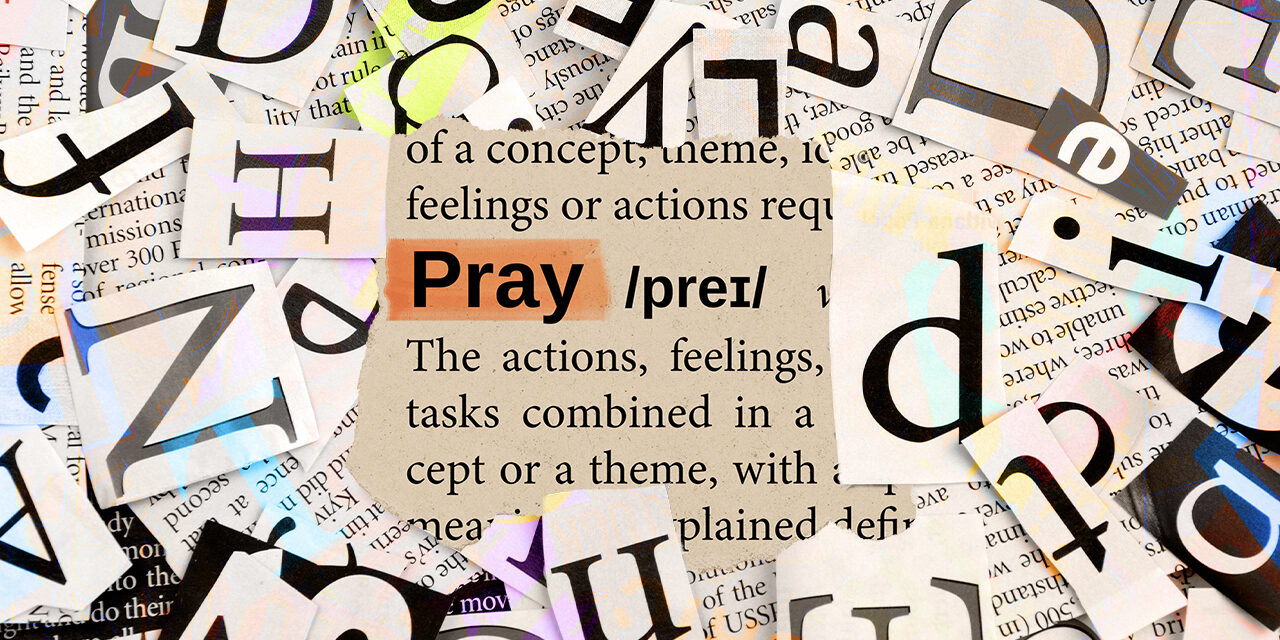
Laura Warth
Laura Warth is a former real estate broker turned minister of the gospel. She serves as the co-pastor of Chapel of Change and leads the rapidly growing Southern California congregation’s School of Prayer. She became an ordained Free Methodist elder in 2021, and she serves as a member of the National Prayer Ministry Team.
By Laura Warth
Malpractice is a serious violation in the eyes of society. Doctors can lose their medical license. Lawyers can lose their access to stand before a judge. When it comes to prayer, we would be surprised at how many Christians are guilty of engaging in what I call prayer malpractice.
Prayer malpractice happens when we approach God in an improper or negligent way. Jesus warned us against this in Matthew 6:7 when He said, “And when you pray, do not use meaningless repetition as the Gentiles do, for they think they will be heard because of their many words” (AMP).
Meaningless repetitions are words spoken without meaning, uttered without sincerity, released without faith, and expressed without true reverence for God. According to E.M. Bounds, “Prayer as a mere habit, as a performance gone through by routine or in a professional way, is a dead and rotten thing.”
_
“As children of God, one of His primary plans for us is that we be formed into the image of Christ.”
_
God has ordained prayer as a way of accomplishing His plan for our lives. As children of God, one of His primary plans for us is that we be formed into the image of Christ.
In Galatians 4:19, the Apostle Paul was writing to the church from a place of frustration. He was frustrated with their lack of progress. Instead of progressing in their spiritual formation, some of them were actually going backward. So he opens his heart and writes this description of his personal struggle for them: “My little children, for whom I am again in [the pains of] labor until Christ is [completely and permanently] formed within you” (AMP).
Another word for labor is travail. And when we study the life of Paul, we find out that one of the primary ways he prayed was in travail. He was a man of intense prayer. He travailed in prayer for himself, and he travailed in prayer for the church.
Paul understood the purpose of prayer. It kept him filled with God’s power, focused on God’s mission and faithful to God until the end. Prayer was the method Paul used to accomplish God’s plan for his own life. He engaged in prayer as a method for transformation. You and I are no different. We need to pray with the same purpose in mind — to bring about the same transformation in our own lives. The good news is that it is within our reach. We are just one choice away from engaging in prayer as Paul did and reaping the same benefits.
Unfortunately, prayer is not understood by many people. Prayer has been primarily viewed as a method for getting our own earthly needs met. Much of prayer has become self-centered and not God-centered. James said, “You ask [God for something] and do not receive it, because you ask with wrong motives [out of selfishness or with an unrighteous agenda], so that [when you get what you want] you may spend it on your [hedonistic] desires” (James 4:3 AMP).
How do we view prayer? What do our prayers focus on? Do they focus on God and His plans, or do they focus on us and our desires?
_
“Who we become by prayer is more important that what we get at the place of prayer.”
_
The early church prayed for change — a continuous change to happen in them. Epaphras prayed for this purpose. He prayed that God’s people would stand perfect and complete (Colossians 4:12). Something should be happening when we pray. It should be apparent to us, to the church and to the world that we are becoming more like Jesus. That is the purpose of prayer. Who we become by prayer is more important than what we get at the place of prayer. Prayer is designed to make us become more like Jesus. By prayer, we are transformed more and more into the image of Christ.
Observe what took place with Jesus. Jesus praying was a prophetic picture of what takes place when we enter into prayer. Luke 9:29 says, “As He was praying, the appearance of His face became different [actually transformed], and His clothing became white and flashing with the brilliance of lightning” (AMP).
See the connection — it happened while He prayed! As He was praying to the Father, it produced a glorious effect on His person. Prayer is a transfiguring, transforming process, which makes the face, the countenance, the very person shine.
Prayer releases God’s transforming power in our life. Some of us pray to become better pastors, better leaders, better spouses. That’s good. But even better is to pray to become more like Jesus!
In this season, we are calling the church to prayer. Let us avoid prayer malpractice with meaningless repetition or selfish motives. Let us travail like Paul, seek holiness for God’s people like Epaphras and experience transformation — yes, even transfiguration like Jesus! Let’s seek Christlikeness in our prayer.+

Laura Warth
Laura Warth is a former real estate broker turned minister of the gospel. She serves as the co-pastor of Chapel of Change and leads the rapidly growing Southern California congregation’s School of Prayer. She became an ordained Free Methodist elder in 2021, and she serves as a member of the National Prayer Ministry Team.









